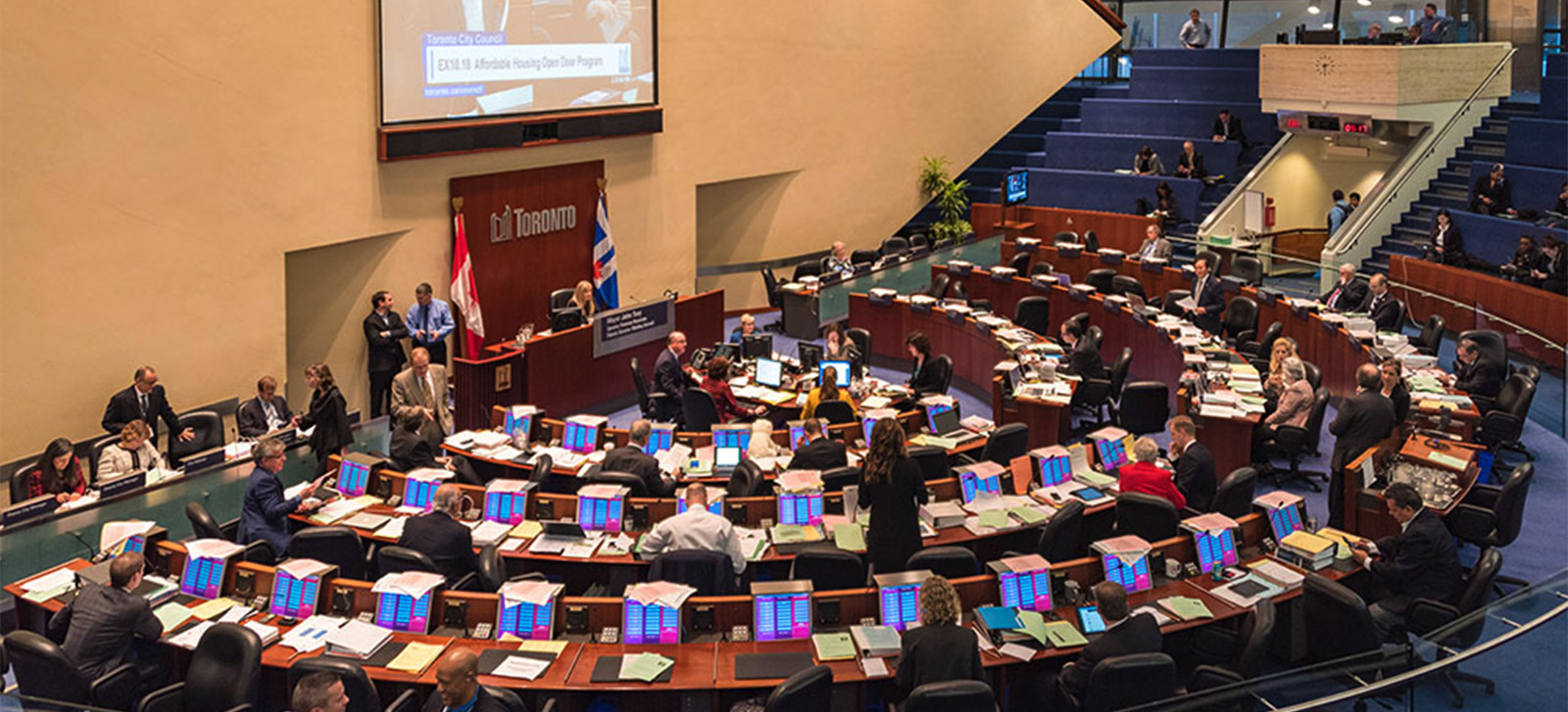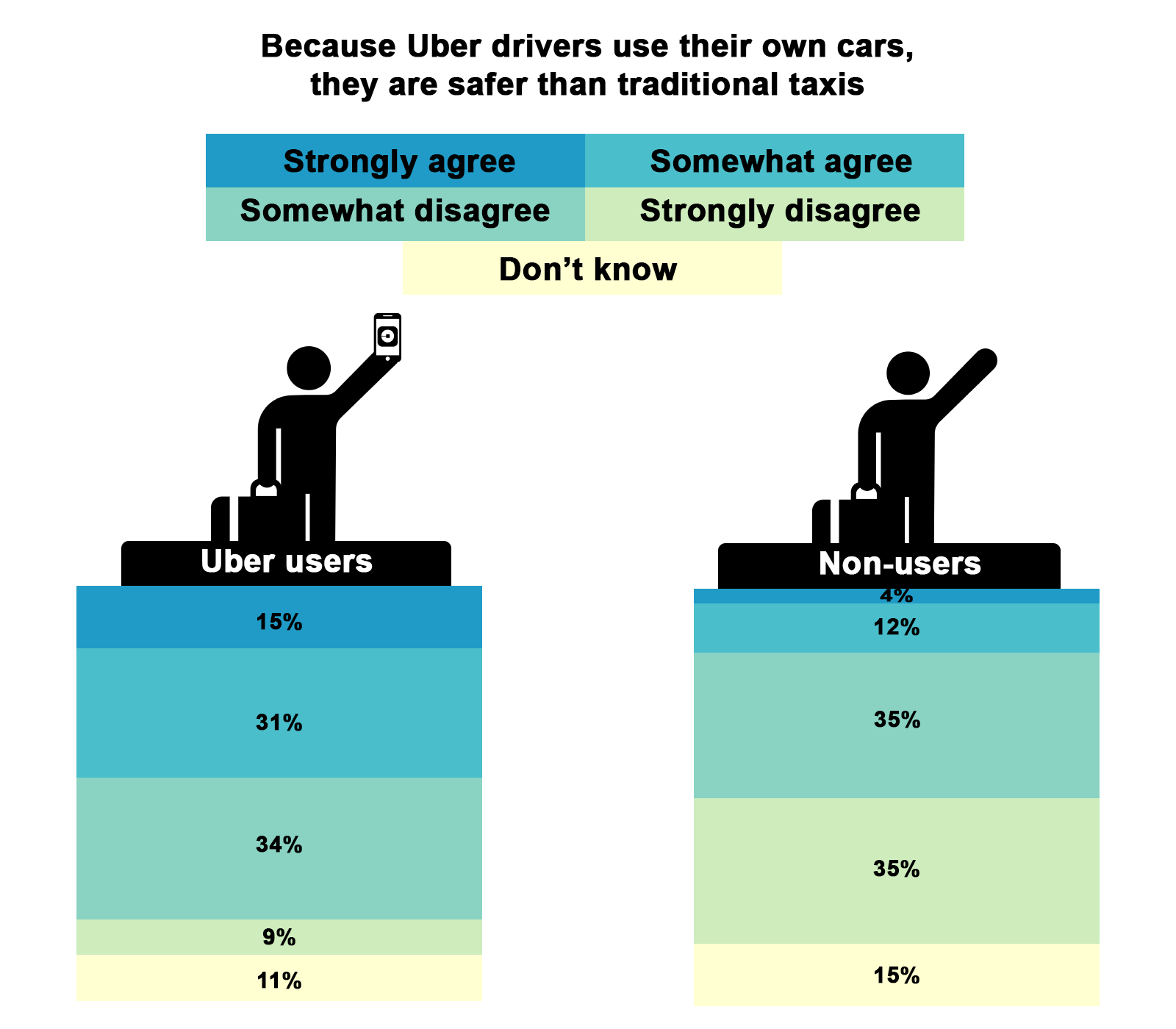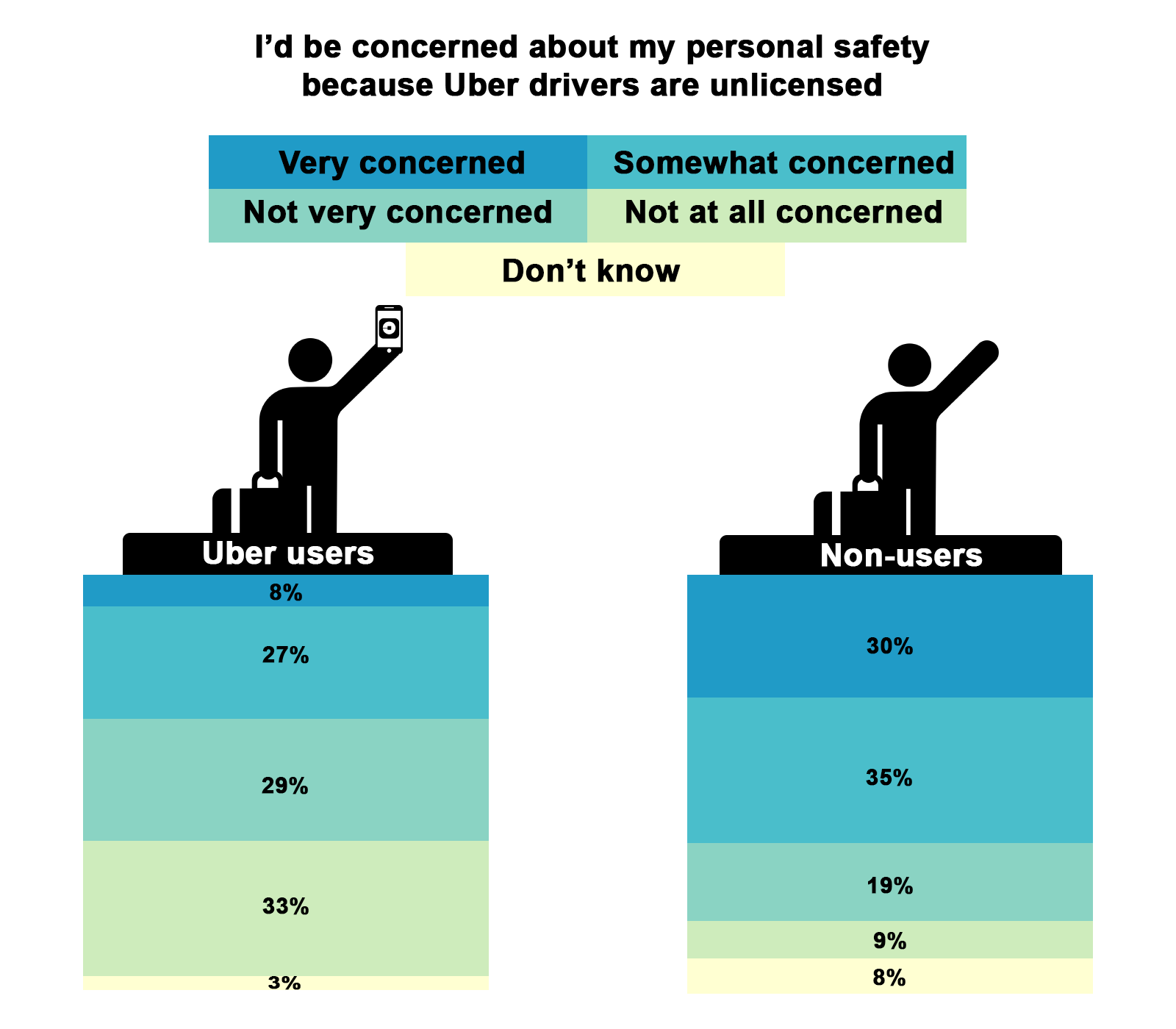
A Tale Of Two Investors: How DIY Investors Are Reacting To COVID-19
ARTICLE BY
Jodi Shanoff
Across the country, discussions are taking place about how to regulate Uber. The City of Edmonton recently passed a bylaw that creates a framework for Uber to operate legally in that city. Neighbouring Calgary, meanwhile, passed a bylaw that Uber claims is too restrictive for it to offer the service to residents there. Toronto is in the process of developing its own regulations, which makes this an interesting point to examine how citizens feel about Uber, and to start a conversation about how this company (and sharing economy apps in general) should be regulated by municipalities and provincial governments.
Environics Research’s recent Focus GTA survey of 1,005 Toronto-area adults provides a detailed analysis of citizens’ attitudes towards Uber. It finds that a majority of adults living in the GTA (56%) support allowing Uber to operate in their community, with support for the ride-sharing app significantly higher among younger adults, those earning higher household incomes and – not surprisingly – those who have used the service. But even among those who do not currently use Uber, about one-half (49%) support letting Uber on the road in their community.
Six in ten adults in the GTA (61%) are very or somewhat concerned that Uber drivers are not licensed by their municipalities
While opponents express concerns about the disruptive service cutting into the business of traditional, regulated taxi services, their greatest barrier to support seems to be concerns about passenger safety. Six in ten adults in the GTA (61%) are very or somewhat concerned that Uber drivers are not licensed by their municipalities, with a similar proportion (60%) indicating they are concerned about their personal safety in an Uber car because the drivers are not municipally licensed. A majority of Toronto adults also disagree with the notion that it is safer to ride in someone’s private vehicle than it is to ride in a taxi. This also includes a high proportion of Uber supporters, who as a group tend to be more dismissive of the safety and regulatory concerns raised by opponents of the ride-sharing service.


These results show that, for Uber, passenger safety is the greatest potential barrier to increasing ridership and, in turn, growing the support base for this service. In Canada historically, transportation safety has been maintained through regulation, and the next phase of the conversation around Uber needs to be about how best to provide drivers and passengers with peace of mind when using this app. Uber’s continued success in the GTA and elsewhere depends on either embracing regulations proposed by municipal governments, or proactively putting forward its own measures to guarantee driver and passenger safety.
With this in mind, we are launching Environics Talks Uber, an online conversation created and operated by Environics Research to facilitate a dialogue with Canadians about transportation policy and the sharing economy. This discussion is not affiliated with, or sponsored by, any of the transportation stakeholders or governments currently involved in this issue. It is an independent initiative undertaken by Environics to talk with Canadians about the impact of Uber in municipalities and how – or if – Canadians wish to see it added to their local transit options.
**UPDATE: The Environics Talks Uber discussion is currently closed. If you have any comments, questions or concerns regarding Environics Talks Uber please contact Ben Scotland at ben.scotland@environics.ca**
Find out how Environics can help your organization
Related insights



Toronto
366 Adelaide Street West
Suite 101, Toronto, ON
Canada M5V 1R9
416 920 9010
Ottawa
135 Laurier Ave W.
Ottawa, ON
Canada K1P 5J2
613 230 5089
Calgary
421 7th Ave SW
Suite 3000, Calgary, AB
Canada T2P 4K9
403 613 5735
